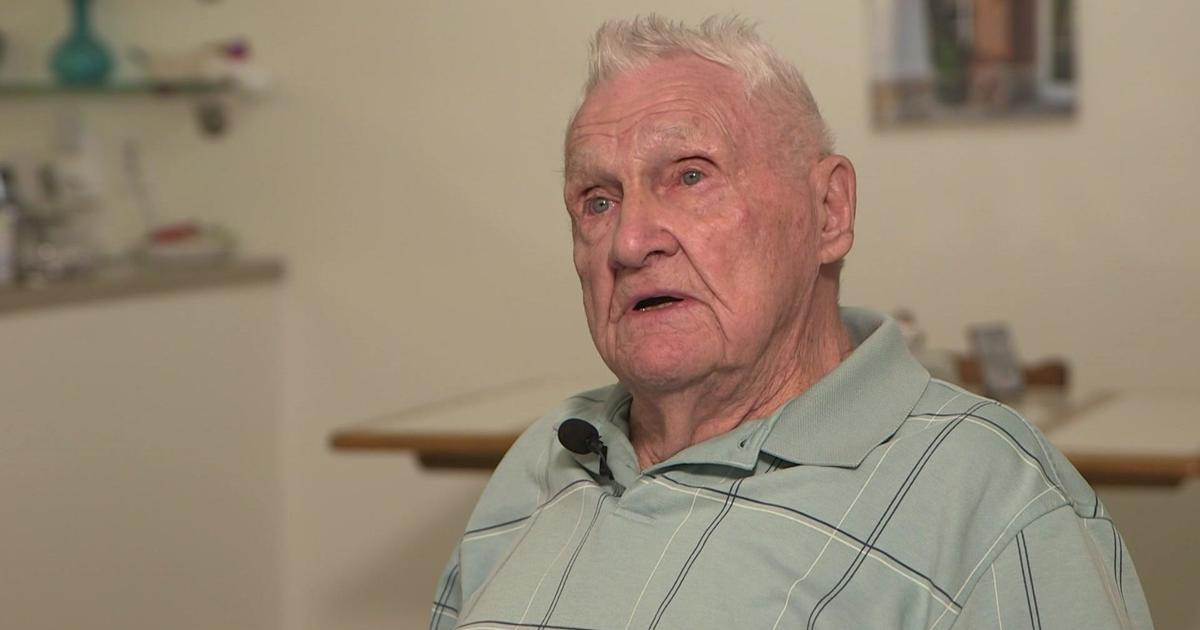Man Gets 20 Years In Somali Terror Investigation
MINNEAPOLIS (AP) - A man who authorities say played a key role in funneling young men from Minnesota to a terrorist group in Somalia was sentenced Monday to 20 years in prison, while another man who was a foot soldier for al-Shabab received a 10-year sentence.
Mahamud Said Omar, 47, and Kamal Said Hassan, 28, learned their sentences Monday as a federal judge in Minneapolis began doling out penalties in the long-running investigation into terror recruiting and financing for al-Shabab. They were the first of nine people who will be sentenced this week in what has been called one of the largest efforts to recruit U.S. fighters into a foreign terror group.
"Today marks a significant point in our efforts to identify and neutralize the efforts of al-Shabab to support terrorist operations from their American Diaspora," Chris Warrener, special agent in charge of the FBI office in Minneapolis, said in a statement. He said the investigation continues with "our full commitment."
Authorities say the conspiracy began in 2007, when small groups of Somali men began holding secret meetings to talk about returning to their homeland to wage jihad against Ethiopians. The Ethiopian army was brought into Somalia in 2006 by its weak U.N.-backed government, but the troops were viewed by many Somalis as invaders.
Hassan, a former foot soldier, is among the more than 20 young men who left Minnesota since 2007 to join al-Shabab. Hassan said he was told it was his "duty" to fight, and he didn't know what al-Shabab truly was until he was in Somalia.
Hassan pleaded guilty in 2009 to two terror-related counts and one count of lying to the FBI. He admitted he went to Somalia to fight, trained with al-Shabab and left after participating in an ambush of Ethiopian troops.
"I helped al-Shabab and I lied to the U.S. government, your honor," a tearful Hassan told Chief U.S. District Judge Michael Davis. "I can't take back what I did, but I can show you and my family and the government and the Somali community that I can do better."
Hassan, a husband and father of a 3-year-old son, apologized in court and said he no longer supports al-Shabab or any similar group. He said he was sorry for destroying his family, and for giving the Somali community a negative image.
He faced a maximum of 38 years in prison, but the government sought a reduced sentence because Hassan gave "extraordinary" cooperation as authorities were building their investigation.
Davis said he is not convinced that Hassan is not still lying and said Hassan's statement reminded him that some people who are very bright can also be "very, very devious." Davis had a recruitment video played in court that shows Hassan urging others to join the cause in Somalia to show that Hassan can be convincing.
"I don't know you. The government doesn't know you. Your family doesn't know you," Davis told Hassan. Still, he granted the lower sentence, noting Hassan was the first person to begin cooperating with the government and "break open this conspiracy" of terror recruiting in Minneapolis.
Hassan will also be on supervised release for 20 years after he is out of prison.
Omar, convicted on five terror-related counts, also made a lengthy statement before he was sentenced — much of it was incoherent and rambling.
During Omar's trial, prosecutors alleged the mosque janitor used recruits as "cannon fodder" and helped feed them into a pipeline of violence in their homeland. They said he continued to help travelers — even in the days after a Minnesotan carried out a suicide bombing in Somalia in 2008. Prosecutors say most of men who left in that group have died.
"The pain, physical and psychological, that the defendant's crimes have caused, both here in Minnesota and in Somalia, is almost incalculable, as is the threat his participation in international terrorism posed to the national security of the United States," prosecutors wrote in documents filed in advance of Omar's sentencing.
In his statement Monday, Omar denied the allegations.
"I am somebody who loves the United States and the American people," he said through an interpreter. "The jury, they didn't understand. ... I never saw any weapon, never carried a gun, never went to training camp."
He also said his attorneys were "disrespecting" him because they told him not to write the judge a letter.
Omar's defense attorneys argued in court filings that he was a passive participant, with a limited mental capacity, and held no power within al-Shabab.
"Mr. Omar was a pawn who, because of his mental disabilities became involved in an organization whose evil was far more advanced than he could comprehend," defense attorney Andrew Birrell wrote.
After the sentencing, Birrell said he respected Omar's right to say what he wanted in court and that the defense plans to go forward with an appeal.
Prosecutors sought lengthy sentences, arguing that the court should send "a clear message to any would-be jihadists that such conduct is not tolerated." They wrote that, to date, neither al-Shabab's designation as a terrorist group nor the prosecutions of men in the U.S. have stemmed the flow of support from Minnesota.
Minnesota is home to the largest Somali population in the U.S.
(© Copyright 2013 The Associated Press. All Rights Reserved. This material may not be published, broadcast, rewritten or redistributed.)



